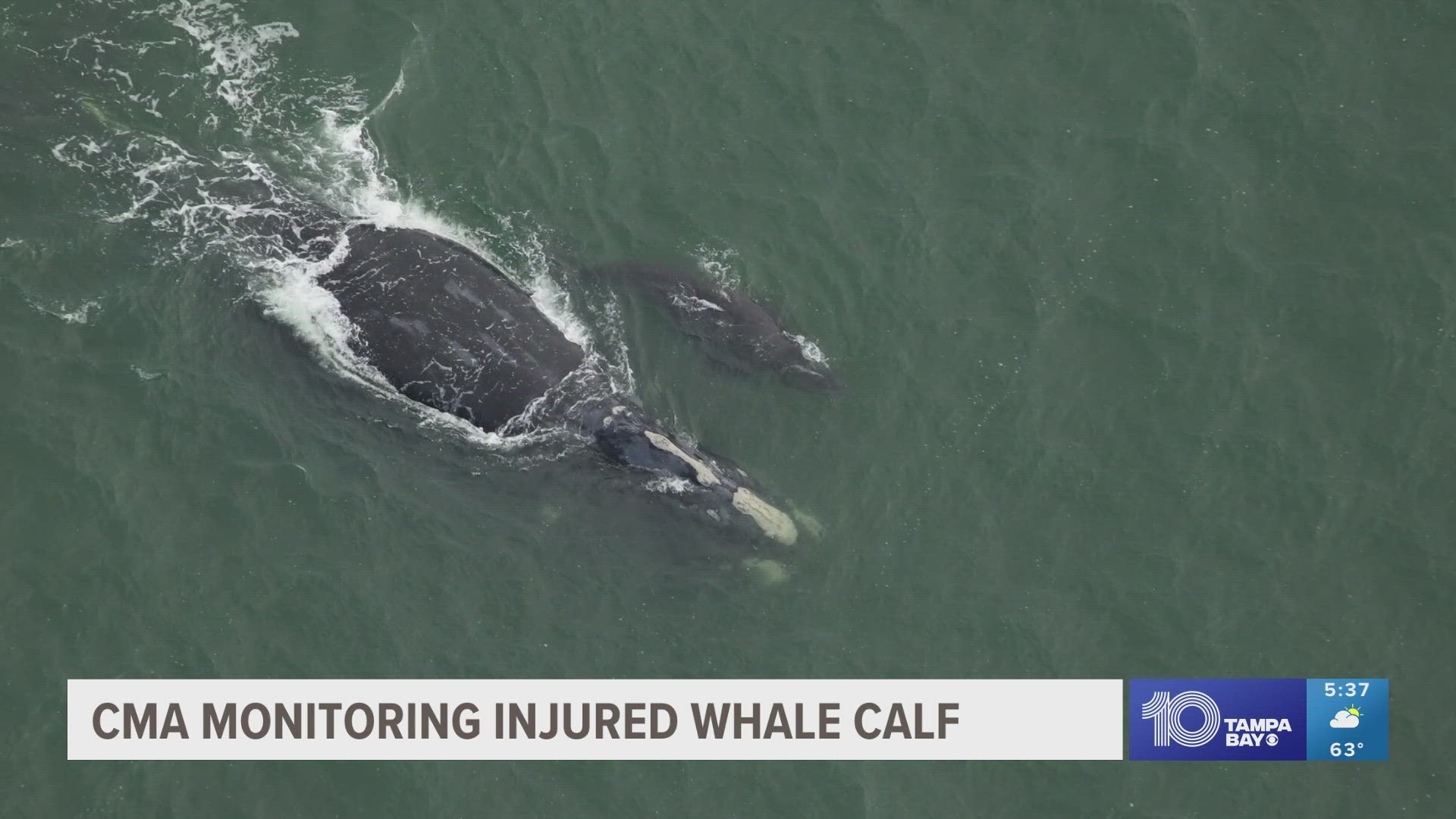CLEARWATER, Fla. — A rare and endangered whale calf, one of only a few documented this year by researchers in the region, could have suffered a deadly injury, according to the Clearwater Marine Aquarium.
The aquarium said Wednesday in a Facebook post that the first North Atlantic right whale calf its research institute spotted this season was seen with a "potentially fatal boat strike injury." The calf's mother is known as Juno.
Clearwater Marine Aquarium says the calf is one of only nine calves documented by researchers in the Southeast so far this season. North Atlantic right whale calving season is between Nov. 15 - April 15, the Florida Fish and Wildlife Research Institute said.
Right now, boaters off the coast of Georgia, South Carolina and northeast Florida are being asked to report sightings of the hurt North Atlantic right whale calf. Sightings can be reported by calling 877-WHALE-HELP (877-942-5343) or by hailing the U.S. Coast Guard on marine VHF channel 16.
Boat strikes and entanglement in commercial fishing gear remain one of the leading causes of death for North Atlantic right whales, the aquarium said. The FWC added that mother-calf pairs spend a lot of time in coastal waters and stay near the surface to rest and nurse, making them more at risk for boat strikes. In addition, while the whales are big creatures, they keep a low profile and are often hard to spot.
According to the aquarium, Juno and her calf were spotted on Nov. 28 off the coast of South Carolina. At the time, researchers estimated the calf was no more than four days old, the FWC added. Juno, also designated as Catalog #1612, is at least 38 years old. She's been documented as having eight calves with the last one born during the 2019-2020 season.
North Atlantic right whales are considered one of the world's most endangered large whale species. There are only an estimated 350 right whales left.
The FWC says healthy female North Atlantic right whales generally raise a calf every three years — they are pregnant for about a year, raise the calf the following year and then recover for the third year. However, when the female right whales are thin or stressed, their "recovery" year is extended, oftentimes multiple years in a row.

